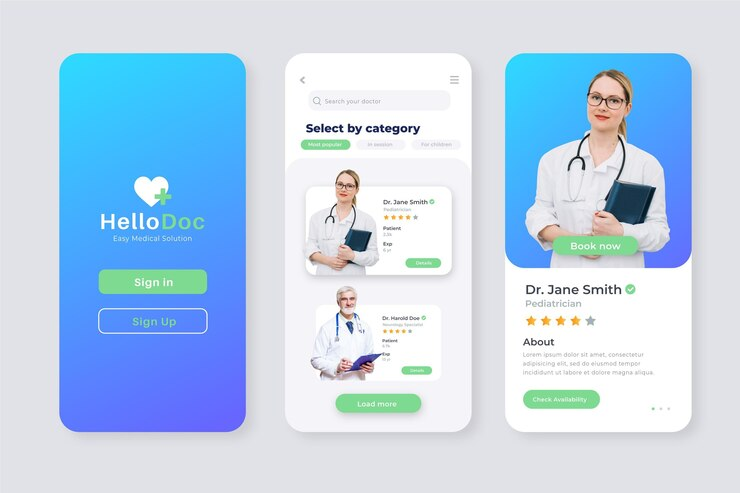In our digital age, smartphones have seamlessly integrated into our lives, significantly influencing the healthcare landscape. Mobile Health Applications, or mHealth apps, represent a paradigm shift in healthcare accessibility and user-centric services.
These innovative apps, born from the fusion of technology and healthcare, usher in an era of tailored care, convenience, and enhanced accessibility. Let’s embark on a journey to explore the profound impact of mHealth apps on modern healthcare.
Understanding the Realm of mHealth Technology
The expansive domain of mHealth apps has redefined healthcare delivery by offering unparalleled convenience and accessibility. Their rapid integration has reshaped healthcare dynamics, allowing swift diagnoses and elevating the overall healthcare service quality.
mHealth apps bridge the gap between patients and healthcare providers, providing comprehensive satisfaction to approximately 70% of Americans who have embraced these apps, acknowledging their convenience and efficacy.
Embracing Diverse Mobile Health Solutions
mHealth apps encompass a diverse range of functionalities catering to global healthcare needs, surpassing a market size of $60 billion. These apps serve multiple purposes:
- Enhanced Connectivity: Facilitating frequent interactions between patients and caregivers through remote consultations;
- Proactive Chronic Disease Management: Vigilantly tracking and monitoring chronic diseases to ensure timely interventions;
- Seamless Accessibility: Immediate access to medical data, eliminating cumbersome paperwork and expediting necessary actions;
- Empowering Self-Monitoring: Encouraging patients to take charge of their health through integrated tools;
- Efficient Appointment Management: Streamlining appointment processes to minimize administrative burdens;
- Virtual Telehealth Consultations: Enabling remote consultations, reducing unnecessary in-person visits;
- Automated Medical Data Records: Simplifying health-related data sharing among relevant entities;
- Precision Appointment Reminders: Preventing no-shows with automated reminders, ensuring timeliness;
- Medication Schedule Alerts: Enhancing patient outcomes by ensuring adherence to medication schedules;
- Physician Efficiency Amplification: Equipping physicians with insights for improved care delivery and productivity.
Prominent Examples of Successful Mobile Health Applications
Ada Health
Advantages: AI-driven symptom assessment app offering personalized health information, aiding in early detection, and providing reassurance.
Headspace
Advantages: Meditation and mindfulness app focusing on mental wellness, offering stress reduction and improved sleep.
MyFitnessPal
Advantages: Fitness and nutrition app aiding users in tracking diet, exercise, and weight goals, promoting healthy habits.
Flo Health
Advantages: Menstrual cycle tracker empowering women with reproductive health insights, aiding in family planning.
Calm
Advantages: Meditation app assisting in stress management, anxiety reduction, and sleep improvement.
Embracing the Future of Healthcare Accessibility
The evolving landscape of Mobile Health Applications represents a fundamental shift in healthcare paradigms. From remote consultations to personalized health management tools, these apps redefine the boundaries of healthcare accessibility and user-centric services.
As technology intertwines with healthcare, the journey ahead promises a seamless integration of innovative solutions that prioritize individual well-being.
Discover the impact of pharmacy inventory management on enhancing patient care
Pioneering Advancements in mHealth Solutions
The evolving trends in mobile health solutions continue to redefine healthcare standards, including:
- Patient-Centric Wellness: A surge in wellness apps focused on promoting healthier lifestyles and fitness monitoring;
- Proactive Remote Monitoring: Advanced tools for tracking chronic conditions remotely, ensuring proactive management;
- Secure Data Management: Empowering patients to securely store and share medical data through eHealth apps;
- Convenient Communication Channels: Seamless text and video options for virtual consultations and daily health tracking;
- AI-Driven Innovations: Leveraging artificial intelligence for rapid data processing and precise clinical decision-making;
- Chatbot Integration: Supportive aids for healthcare professionals and enhanced patient engagement;
- Self-Monitoring Tools: Efficient platforms aiding in symptom detection and continual disease monitoring;
- Smart Alarms for Health: Notification systems offering insights into sleep patterns, optimizing sleep cycles;
- Harnessing Big Data: Transformational analysis of structured and unstructured data, reshaping healthcare approaches;
- Robust Security Measures: Prioritizing high-security standards to safeguard crucial health information.
Conclusion
The ongoing advancements in Mobile Health Applications mark a transformative era in healthcare accessibility and personalized wellness. From empowering individuals with health insights to fostering proactive health management, these apps embody a future where healthcare transcends conventional boundaries.
As the journey continues, these innovations promise a world where quality healthcare is not just a service but an integral part of our daily lives, empowering us to embrace a healthier and more informed future.
